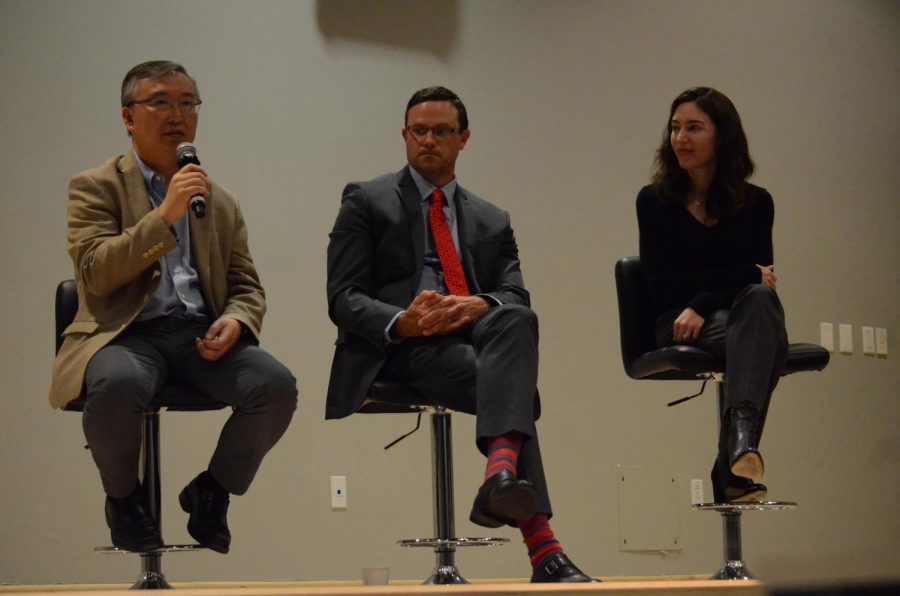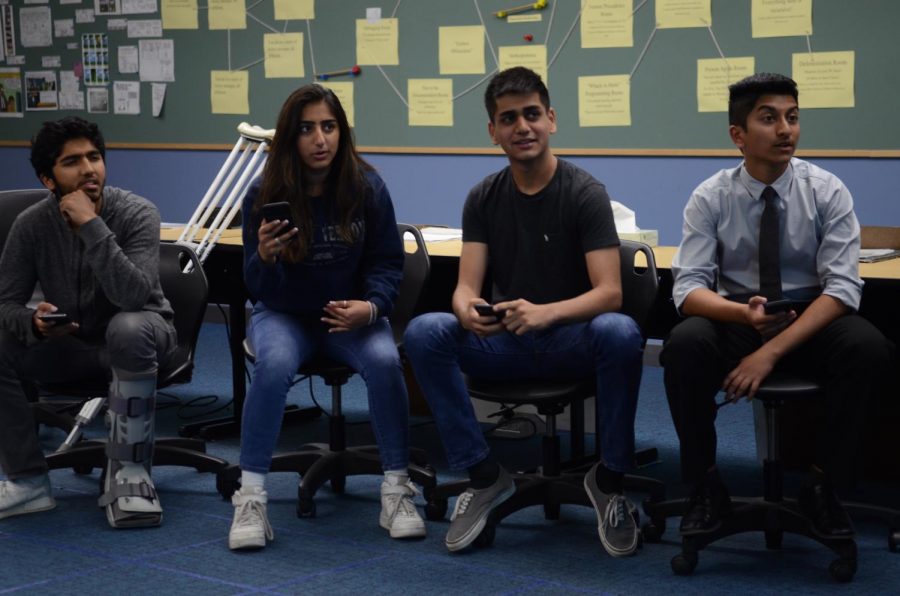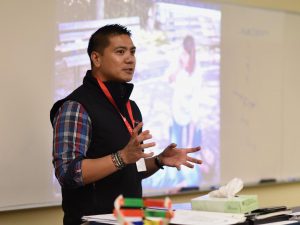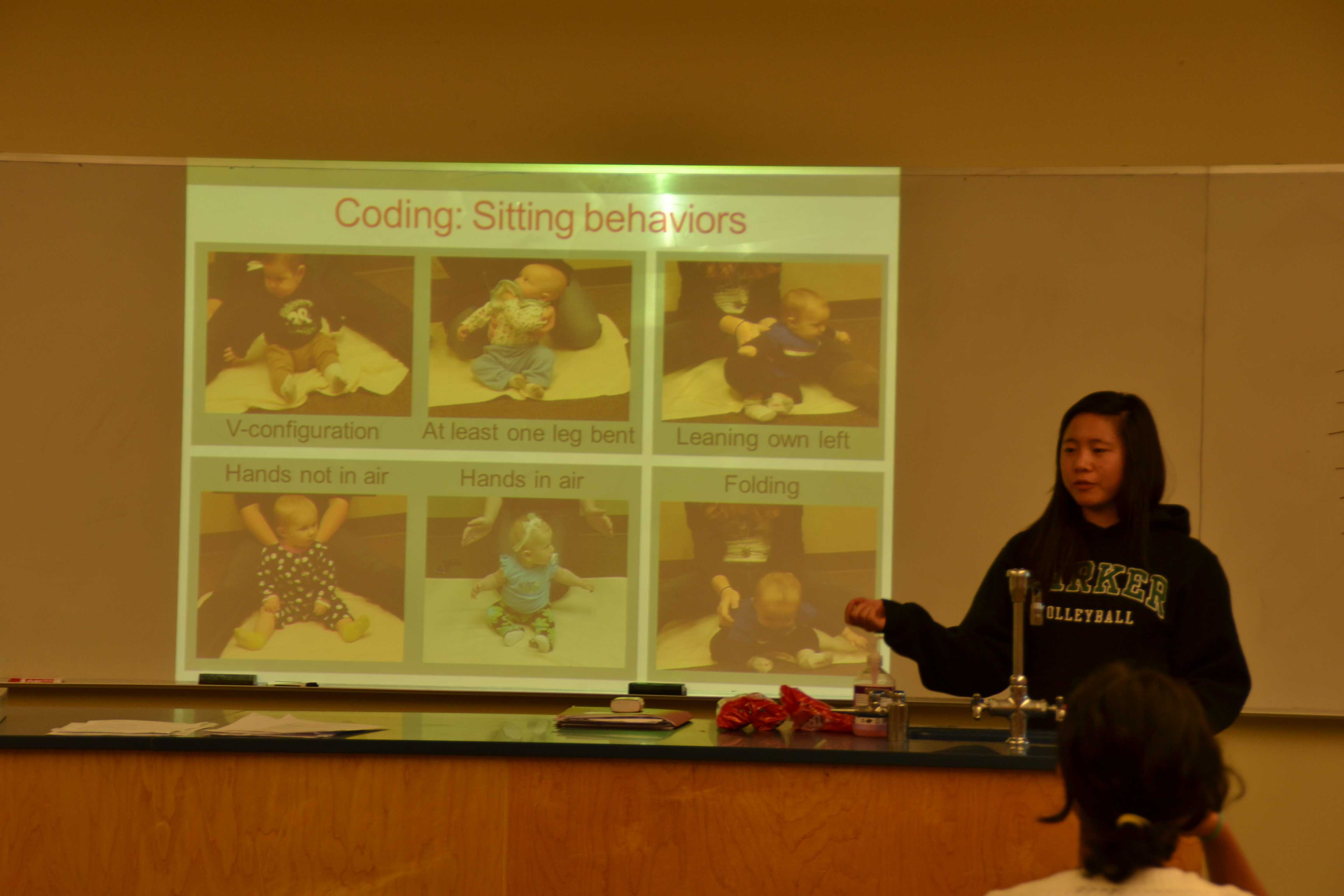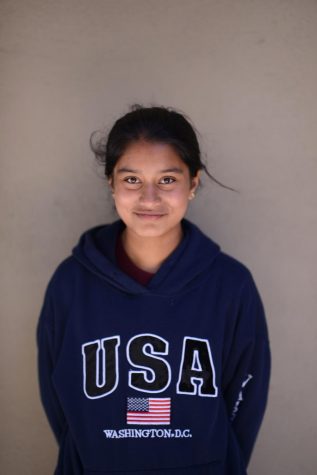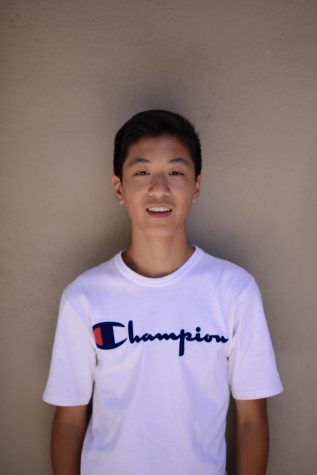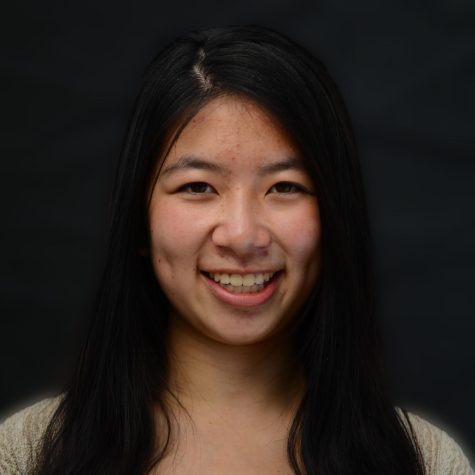Medical Club hosts speakers and interactive activities in inaugural Evening of Medicine
Irene Y
Dr. Lawrence Fung speaks during a panel at the Evening of Medicine event hosted by the upper school Medical Club last Friday. The panel Q&A consisted of three Stanford doctors: Dr. Lawrence Fung, a psychiatrist; Dr. Zachary Vaughn, an orthopedic surgeon; and Dr. Lisa Zaba, a dermatologist.
November 15, 2019
The upper school’s Medical Club held the first-ever Evening of Medicine last Friday from 4 to 6:30 p.m. in the Nichols Auditorium, featuring a variety of medical professionals as speakers and engaging activities for attendees to immerse themselves in medicine for an evening.
One of the invited doctors was keynote speaker and Harker parent Dr. Prasad Kilaru, a Chief of Surgery at the Washington Hospital in Fremont, who spoke about his work as a plastic and reconstructive surgeon. Dr. Kilaru talked about the advantages of reconstructive surgery based on the large range of injuries it can remedy, and he also debunked the common misconception that plastic surgery is only for altering appearance.
“Cosmetic surgery is less than 10 percent of what I do,” he said.
Alex Zhang (10), one of the many students that attended Dr. Kilaru’s speech, enjoyed learning about real-world uses of plastic surgery beyond the common perception of its sole connection to cosmetics.
“Dr. Kilaru showed us the practical applications of plastic surgery on trauma victims, such as severed limbs, instead of cosmetic surgery,” Alex said.
The presentation was also eye-opening to Elvis Han (10) as an exploration of the diverse uses for plastic surgery. Elvis specifically remembered the pictures Dr. Kilaru showed to exemplify different procedures.
“I was always curious about how it could help outside of the cosmetic industry, and hearing his speech was very enlightening,” Elvis said.“It was also the first medical presentation that provided actual photos of the procedures [and] surgery incisions.”
Although being a doctor often comes with a stable income, Dr. Kilaru emphasizes in his presentation that money should not be a driving factor in deciding professions. Rather, he believes that “you have to love what you do” to be successful and joked that a cobbler who enjoys his job could be better at sewing than a poorly trained surgeon.
After the keynote presentation came a brief workshop session. Students discussed ethics in medicine through a four corners game, in which they expressed and discussed various degrees of agreement and disagreement regarding questions on medical ethics. They also learned about dermatoscopes through a hands-on activity and played a medical trivia Kahoot!.
Finally, a panel consisting of Stanford doctors Lawrence Fung, Zachary Vaughn and Lisa Zaba answered questions from the audience regarding their professions and careers. The topics discussed ranged from how to balance a family amid the commitments of residency and practice to the differences between academia and working at companies.
“I think [the Evening of Medicine] was a great idea, and there was a decent amount of turnout. I think it’s definitely worth doing again,” Mihir Dixit (12), an officer of the Medical Club, said.


















![“[Building nerf blasters] became this outlet of creativity for me that hasn't been matched by anything else. The process [of] making a build complete to your desire is such a painstakingly difficult process, but I've had to learn from [the skills needed from] soldering to proper painting. There's so many different options for everything, if you think about it, it exists. The best part is [that] if it doesn't exist, you can build it yourself," Ishaan Parate said.](https://harkeraquila.com/wp-content/uploads/2022/08/DSC_8149-900x604.jpg)




![“When I came into high school, I was ready to be a follower. But DECA was a game changer for me. It helped me overcome my fear of public speaking, and it's played such a major role in who I've become today. To be able to successfully lead a chapter of 150 students, an officer team and be one of the upperclassmen I once really admired is something I'm [really] proud of,” Anvitha Tummala ('21) said.](https://harkeraquila.com/wp-content/uploads/2021/07/Screen-Shot-2021-07-25-at-9.50.05-AM-900x594.png)







![“I think getting up in the morning and having a sense of purpose [is exciting]. I think without a certain amount of drive, life is kind of obsolete and mundane, and I think having that every single day is what makes each day unique and kind of makes life exciting,” Neymika Jain (12) said.](https://harkeraquila.com/wp-content/uploads/2017/06/Screen-Shot-2017-06-03-at-4.54.16-PM.png)








![“My slogan is ‘slow feet, don’t eat, and I’m hungry.’ You need to run fast to get where you are–you aren't going to get those championships if you aren't fast,” Angel Cervantes (12) said. “I want to do well in school on my tests and in track and win championships for my team. I live by that, [and] I can do that anywhere: in the classroom or on the field.”](https://harkeraquila.com/wp-content/uploads/2018/06/DSC5146-900x601.jpg)
![“[Volleyball has] taught me how to fall correctly, and another thing it taught is that you don’t have to be the best at something to be good at it. If you just hit the ball in a smart way, then it still scores points and you’re good at it. You could be a background player and still make a much bigger impact on the team than you would think,” Anya Gert (’20) said.](https://harkeraquila.com/wp-content/uploads/2020/06/AnnaGert_JinTuan_HoHPhotoEdited-600x900.jpeg)

![“I'm not nearly there yet, but [my confidence has] definitely been getting better since I was pretty shy and timid coming into Harker my freshman year. I know that there's a lot of people that are really confident in what they do, and I really admire them. Everyone's so driven and that has really pushed me to kind of try to find my own place in high school and be more confident,” Alyssa Huang (’20) said.](https://harkeraquila.com/wp-content/uploads/2020/06/AlyssaHuang_EmilyChen_HoHPhoto-900x749.jpeg)



